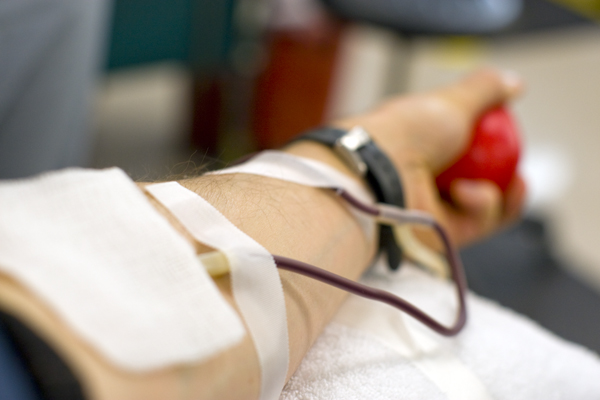
I typically donate blood every 8 weeks or so primarily for the baby blood donor program. ARUP tells me that over the years I have donated gallons of blood which is good given that only about 37 percent of the population is actually eligible to donate blood according to a recent study in the journal Transfusion. However, the reality of how many actually donate blood is far less with ARUP estimating that only about 5 percent of the population actually gives blood and of those, they donate approximately 1.7 times per year making regular blood donors particularly valuable. In fact, the blood is so valuable that most blood banks are going to be somewhat unwilling to relax safety standards in the face of any new health risks according to Richard Benjamin which of course makes the research into blood substitutes that much more important especially in the face of higher blood demand world wide.
I have to wonder about other possible solutions though. There are costs associated with obtaining and distributing blood, but all blood suppliers are non-profit businesses that charge typically just enough to cover their costs. However, according to the Red Cross, blood typically costs the end user around $0.40/ml (cheaper than inkjet cartridges) or $200 for a unit of blood (~500ml) meaning that those who donate 6 times per year are essentially giving away around $1200 worth of tissue every year. So, while a small percentage of the population joins me in donating blood freely, one wonders about the rates of blood donation in the population if there were some financial incentive like a tax deduction that could be taken for blood and tissue donation? I would prefer blood and tissue donation to be totally voluntary with no compensation, but one does have to consider alternatives at times.
Granted compensation for blood and tissue donation may have its own ethical issues related to people donating blood when they may not be eligible given the added incentive, and in fact studies back in the ’70s found that volunteered blood was less likely to be contaminated with hepatitis than blood derived from financial transactions. That said, those studies were based on direct and immediate compensation for blood rather than a delayed tax deduction which may prove to be more effective in reducing contamination rates while increasing donation. Additionally, there are internal safety checks in the system to screen blood during the interview and through processing that would eliminate these risks to the blood supply and until artificial means of producing blood or blood products becomes viable and cost effective, we are going to have to deal with issues like these in tissue donation. Perhaps by making this a regulated compensation that is only possible with a tax deduction of maximal value this will increase blood donation without invoking such ugly history of the likes of Burke and Hare.
hey, im using this pic one of my projects on blood donation, do you have any objection?
Rube, please check out the copyright terms here and see how your intended use fits: http://prometheus.med.utah.edu/~bwjones/copyright/